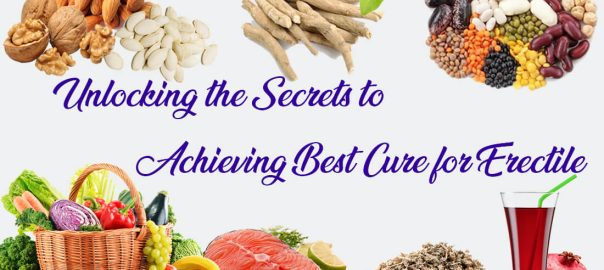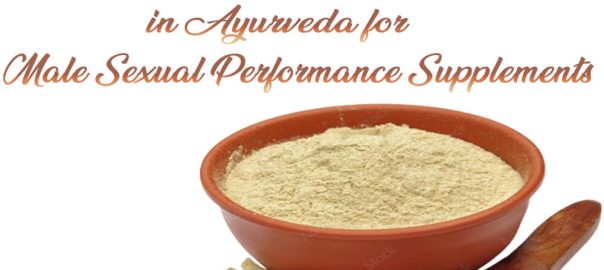
In the era of men’s health and wellness, hormones play an instrumental role in shaping various aspects of our lives. Among these, testosterone is a vital hormone that significantly impacts every individual. This hormone is responsible for masculine traits and muscle development and substantially affects sexual performance. Recently, the market has witnessed a surge in products promising the sexual performance enhancers and improved stamina. This blog post deeply explores the complex interplay between testosterone and sexual performance, investigating its effects, functions, and role in driving sexual motivation.
Understanding Testosterone and Its Importance:
Testosterone is a hormone produced in every individual , although it’s more prominent in men. It is a naturally occurring hormone primarily produced in the testicles in men and smaller amounts in women’s ovaries and adrenal glands. Its role encompasses the development of male reproductive tissues and holds significant importance in muscle mass growth, bone density, and hair. Beyond these physical attributes, testosterone significantly impacts sexual health and function. While synthetic testosterone is available through medications, there’s a growing interest in natural methods to boost its production.
Understanding Natural Testosterone Levels
Individuals are seeking ways to enhance their natural testosterone levels. There are several approaches to achieve this, ranging from lifestyle changes to dietary supplements. Here are some strategies often considered for natural testosterone enhancement:
- Healthy Diet: A diet characterized by balance and the inclusion of ample nutrients, vitamins, and minerals is vital for sustaining optimal testosterone levels. Nutrients like zinc, vitamin D, and omega-3 fatty acids are particularly important for testosterone production.
- Regular Exercise: Regular physical activity, including cardiovascular and strength-training exercises, can help boost testosterone levels. Compound squats, deadlifts, and bench presses are especially effective.
- Adequate Sleep: Sleep is crucial for hormone regulation, including testosterone. Prioritize obtaining 7-9 hours of sleep each day to facilitate the release of hormones that contribute to maintaining good health.
- Stress Management: Persistent stress has the potential to result in heightened cortisol levels, a hormone that can disrupt the production of testosterone. Practising stress-reduction techniques such as meditation, deep breathing, and yoga can be beneficial.
- Limiting Alcohol and Smoking: Excessive alcohol consumption and smoking have been linked to lower testosterone levels. Moderation or avoidance of these habits can contribute to healthier hormone levels.
- Herbal solution: Some herbal options, such as fenugreek, ashwagandha, and Tribulus Terrestris, are believed to have potential testosterone-boosting properties.
Focusing on these natural strategies can optimize your hormone levels and potentially enhance your sexual performance.
The Role of Testosterone in Sexual Performance Enhancers
Testosterone’s role in sexual activity extends beyond the physical aspects. One key function is mood regulation and cognitive operations that add to a favourable sexual experience. It also heightens blood circulation to the genital region, improving the strength of erections. It’s also a driving force behind sexual performance enhancers & motivation. This hormone is linked to the brain’s reward system, increasing sensitivity to sexual cues and stimuli. Higher testosterone levels generally lead to a heightened interest in sexual activities and an increased motivation to seek out sexual encounters. However, it’s important to note that individual variations exist, and factors beyond testosterone can also impact sexual stimulation. Additionally, testosterone can contribute to the confidence and assertiveness integral to initiating and enjoying sexual encounters.
Testosterone Effect on Sexual Performance
Testosterone has a profound impact on sexual performance. It’s linked to the development of sexual organs during puberty and continues to influence sexual desire, arousal, and satisfaction throughout adulthood. When testosterone levels are low, individuals might experience decreased sexual desire, erectile dysfunction, and even difficulties achieving an orgasm. Thus, testosterone plays a crucial role in erectile function, and low levels can result in problems in achieving and maintaining erections. Conversely, optimal testosterone levels can contribute to a healthier sex drive, improved erections, and a more satisfying sexual experience.
While testosterone certainly influences sexual function, its direct impact on staying longer in bed is a bit more complex. Premature ejaculation, denoting the incapability to postpone ejaculation during sexual activity, is influenced by various factors, including psychological, emotional, and physical elements. While testosterone can affect sexual desire and erectile function, lasting longer in bed typically requires a combination of physical techniques, psychological strategies, and open communication with one’s partner.
Functions of Testosterone in Sexual Performance Enhancers
Let’s delve deeper into the key functions of testosterone:
- Libido and Sexual Desire: Testosterone assumes the task of fostering the development of male sexual attributes, including traits like a deep voice, facial hair, and muscle mass. Furthermore, it exerts an influence on libido or sexual desire. Peak levels of testosterone are observed in men during their late teens and early 20s, gradually tapering off as they age. Nevertheless, diminished testosterone levels can manifest at any life stage and may be attributed to various factors, encompassing the effects of ageing and specific medical conditions.
- In males, higher testosterone levels are associated with an increased interest in sexual activities and a stronger drive to pursue romantic and intimate relationships. This hormone influences the brain’s pathways related to sexual motivation and arousal, making it a fundamental factor in having healthy and active sex.
- Erectile Function: Within its diverse array of functions, testosterone plays a substantial role in the processes that govern the attainment and preservation of erections. Functioning as a vasodilator, it widens blood vessels, enhancing blood circulation, particularly in the genital region. Ensuring adequate blood flow to the penis is of paramount importance in the pursuit of attaining and sustaining a robust and lasting erection. Insufficient testosterone levels can lead to difficulties achieving erections, potentially resulting in erectile dysfunction.
- Sperm Production: Testosterone is a crucial factor in enabling the production of sperm, a fundamental requirement for male fertility. Sperm are produced in the testicles, and testosterone helps to stimulate the development and maturation of sperm cells through a process called spermatogenesis. Sufficient testosterone levels are crucial to initiate and maintain this process. If testosterone levels are low, reduced sperm production can result, causing fertility issues.
Other alternatives functions of Testosterone
- Muscle Growth: Testosterone is known to have an anabolic effect, meaning it promotes the growth of muscle tissue in the body. It improves protein synthesis, a vital mechanism for repairing and growing muscles. Yet, remember that sustainable muscle growth relies on natural testosterone levels, along with proper exercise and nutrition.
- Bone Health: While often associated with masculine physical traits, testosterone is crucial in maintaining strong and healthy bones. It helps to maintain bone density and mass. Bone mass refers to bone tissue amount, while bone density indicates mineral concentration in a given volume of bone tissue. Insufficient testosterone levels can heighten the vulnerability to osteoporosis, which results in the enfeeblement and brittleness of bones. Adequate testosterone levels are essential to prevent osteoporosis, especially as men age. Bone health is critical for physical well-being, mobility, and quality of life.
- Red blood cell production: Testosterone helps stimulate red blood cell production. Red blood cells’ main purpose is to transfer oxygen to the body’s tissues. Low testosterone levels can lead to anaemia, which causes fatigue and shortness of breath. Anaemia is more common in women than men, but men with low testosterone levels are also at increased risk.
- Fat distribution: Testosterone redistributes fat in a masculine pattern, increasing muscle and reducing fat around the hips and thighs. Low testosterone links to increased abdominal fat, elevating risks of heart disease, stroke, and type 2 diabetes due to deposition.
- Mental health: Testosterone affects mood, energy levels, and cognitive function. Low testosterone levels can cause depression, fatigue, and difficulty concentrating. Therapeutic use of testosterone has potential to enhance mood, energy, and cognitive function in men with low levels.
Conclusion:
Testosterone’s significance extends beyond masculine traits, crucial for male health, especially sexual function and overall vitality in various aspects. It’s a pivotal factor in male sexual well-being, impacting libido, erectile function, and sexual motivation in a significant way. While best testosterone boosters for sexual performance supplements are available, prioritizing a comprehensive approach involving lifestyle adjustments, candid communication with partners, and seeking guidance are essential steps in the journey to optimizing sexual health. Keep in mind that reactions to supplements and treatments vary. Approach them with an informed and realistic viewpoint. There’s no one-size-fits-all solution, and a holistic approach to sexual well-being is the most effective pathway to a satisfying and enriching sex life.










